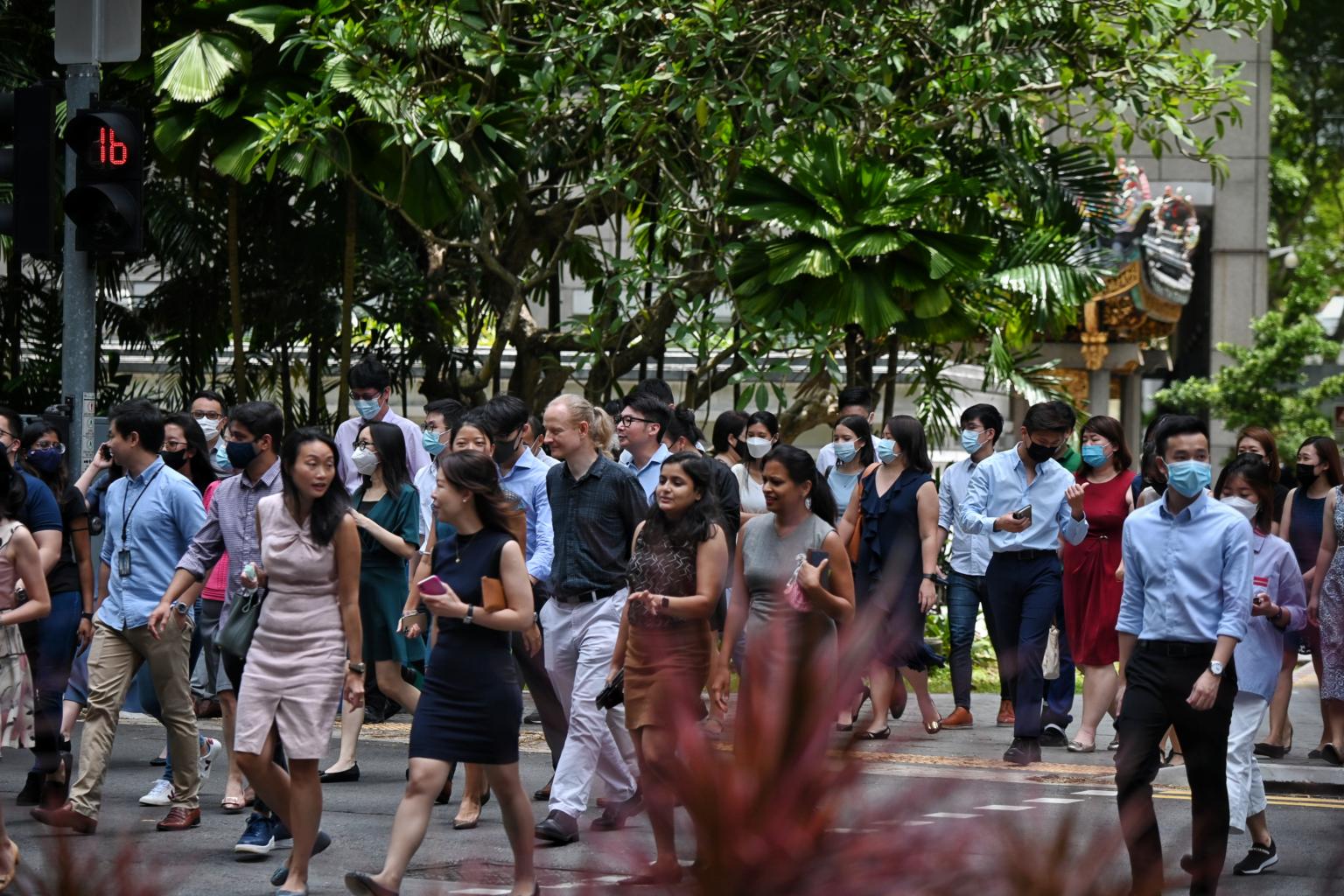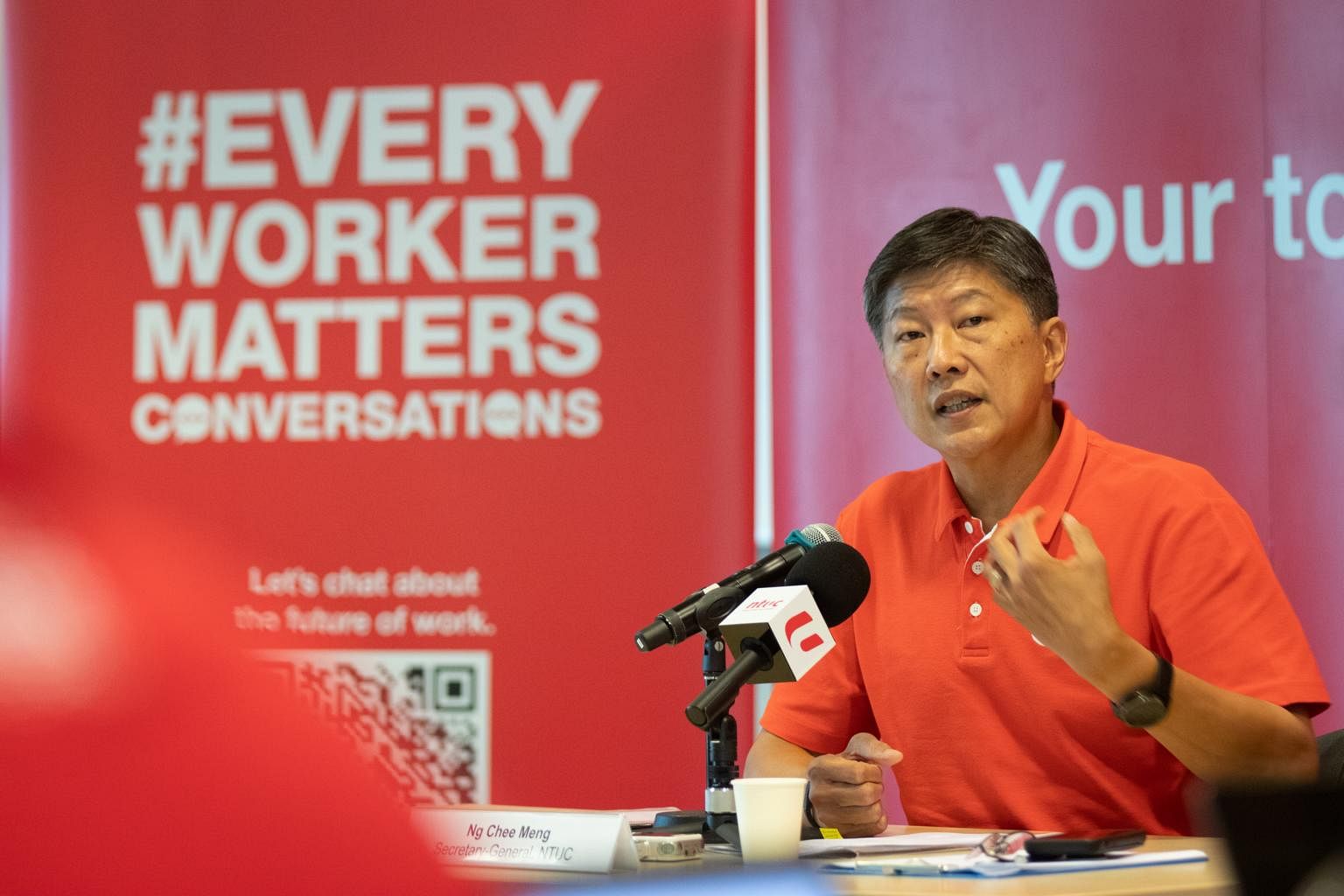NTUC launches year-long exercise to engage Singaporean workers, discuss their concerns
Sign up now: Get ST's newsletters delivered to your inbox

The first phase of NTUC's conversations will run till the end of the year.
ST PHOTO: KUA CHEE SIONG
Follow topic:
SINGAPORE - A new year-long public engagement exercise hopes to reach out to at least 20,000 Singaporean workers to hear their concerns, priorities and aspirations.
The #EveryWorkerMatters Conversations, organised by the National Trades Union Congress and launched by its secretary-general Ng Chee Meng on Thursday (Aug 11), will also examine how unions, associations and social enterprises can evolve to address the feedback gathered.
The findings and subsequent recommendations will also contribute to the Forward Singapore movement, a national year-long engagement exercise led by Deputy Prime Minister Lawrence Wong, which aims to refresh Singapore's social compact.
The first phase of NTUC's conversations will run till the end of the year.
Members of the public aged 18 and above will be invited to share their views through surveys, focus groups and dialogues in schools or with union leaders, among others.
The second phase involves a series of policy workshops with tripartite partners, institutions of higher learning, civic society organisations, human resource practitioners and other organisations to come up with recommendations and concrete suggestions on how to better support workers.
In the third phase, NTUC will surface its findings from earlier stages and release its recommendations by mid-2023, while working with 4G leaders and government policymakers involved in the Forward SG exercise.
The conversations aim to engage a wide spectrum of workers, including professionals, managers and executives (PMEs), the self-employed and working parents, as well as the recently launched NTUC Youth Taskforce.
Mr Ng launched the engagement exercise at a closed-door dialogue with 100 union leaders, along with NTUC president Mary Liew, on Thursday evening.
Speaking to reporters earlier in the day, he noted that, while NTUC has championed workers' interests and collaborated with employers as well as the Government to achieve strong employment, business and national economic outcomes, the country is now at a crossroads.
Economic growth in the future will not be as rapid as in the past, while the world is also becoming more uncertain, with technological advances, intensified competition and new ways of work.
Singapore's demographics and workforce profile are changing, with smaller families and an ageing population, and workers' aspirations are shifting, he said.
To better respond to these changes, the NTUC wants to look at the key factors that enable workers to succeed in their careers, the assurances they need throughout various stages of their life, as well as the protections needed for vulnerable workers.
Mr Ng said he would have liked to hold these engagements in 2020 when NTUC was rethinking its business and membership models, but the Covid-19 pandemic put this on hold.

Mr Ng also acknowledged that at a time of greater uncertainty, workers from different age groups and different segments have different concerns - older workers are concerned about retirement adequacy, gig workers about protections, and younger workers about career progression and work-life balance.
"We think there will likely be greater job polarisation that can potentially widen income inequalities if we do not take active measures as the labour movement," he said.
He noted that in other countries, there are already two-tier economies emerging, "where there are the ones that have and the ones that don't".
"NTUC believes that this is not a good thing to have in our society, because if not properly managed, this will lead to fraying in the social compact," he said.
This could potentially occur in Singapore, he added, citing how among the PMEs, there are managers in firms along Shenton Way earning five or six figures a month at one end, and managers from fast food chains earning about $3,000 a month at the other.
The challenge for the labour movement is to represent PMEs' interests in a different way, in aspects such as protection and welfare, said Mr Ng.
In a personal letter sent out on Friday (Aug 12) to more than one million NTUC members, he invited them to take part in these discussions and help create solutions.
He said: "We also want to hear what each of us as working people are willing to give up to achieve our goals at work. What roles we foresee our employers, unions and government playing - today, tomorrow and the years ahead.
"And what values should guide how we evolve Singapore's social compact around work and employment."

